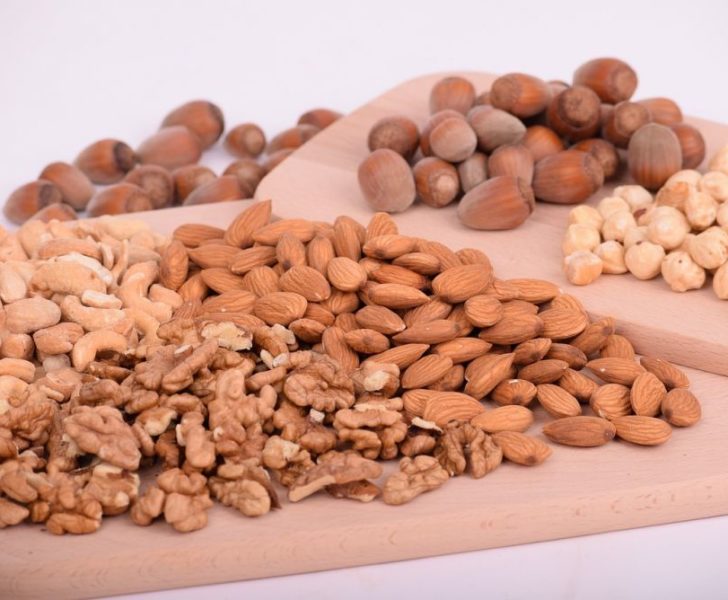PCOS Diet: Managing Polycystic Ovary Syndrome through Nutrition

Introduction
The Polycystic Ovary Syndrome (PCOS) is a hormonal disorder that affects about 5-10% of women worldwide. It is characterized by various symptoms, including irregular periods, cysts on the ovaries, and hormonal imbalances. While there is no known cure for PCOS, research suggests that adopting a specific diet can help manage its symptoms and improve overall health. In this article, we will delve into the world of PCOS diets, exploring what they are, the types available, popular options, and their quantitative measurements.
What is PCOS Diet?

PCOS diet refers to a specialized eating plan designed to improve the symptoms of PCOS and promote hormonal balance. It primarily focuses on regulating insulin levels, as insulin resistance is commonly associated with PCOS. By following a PCOS diet, individuals aim to manage weight, lower inflammation, control blood sugar levels, and support overall reproductive health.
Types of PCOS Diet
There are various types of PCOS diets available, each with its own approach and benefits. Some popular options include:
1. Low Glycemic Index (GI) Diet: This diet emphasizes consuming foods with a low GI, which helps stabilize blood sugar levels and reduce insulin resistance. It includes whole grains, lean proteins, fruits, and vegetables.
2. Mediterranean Diet: Based on the traditional eating pattern of countries bordering the Mediterranean Sea, this diet includes plenty of vegetables, fruits, whole grains, lean proteins, and healthy fats like olive oil and nuts.
3. Anti-Inflammatory Diet: This diet focuses on reducing inflammation in the body by eliminating or minimizing processed foods, added sugars, and unhealthy fats. It encourages the consumption of foods with anti-inflammatory properties, such as fatty fish, leafy greens, and berries.
Quantitative Measurements of PCOS Diet
When following a PCOS diet, certain quantitative measurements play a crucial role in tracking progress and ensuring optimal results. These measurements may include:
1. Caloric Intake: Monitoring daily caloric intake helps maintain a healthy weight, as weight management is vital for PCOS management. It is important to consume an appropriate number of calories to prevent excessive weight gain or loss.
2. Macronutrient Balance: The distribution of macronutrients, including carbohydrates, proteins, and fats, can impact PCOS symptoms. Finding the right balance of these nutrients is key to managing insulin levels and optimizing hormone balance.
3. Nutrient Density: Ensuring the diet is rich in essential nutrients, vitamins, and minerals is essential for overall health. Prioritizing nutrient-dense foods, such as fruits, vegetables, whole grains, and lean proteins, helps support fertility and reduce PCOS-related complications.
Differences in PCOS Diets
Although PCOS diets share common goals, there are differences in their approaches and guidelines. Some variations may include:
1. Carbohydrate Intake: While some PCOS diets recommend low-carbohydrate intake to manage insulin resistance, others may focus on consuming complex carbohydrates with a low GI to prevent blood sugar spikes.
2. Fat Sources: PCOS diets may differ in their recommendations for fat sources. Some diets emphasize healthy fats like avocados and nuts, while others may limit all types of fats to promote weight loss.
3. Dairy Consumption: The role of dairy in PCOS diets can vary. Some diets advocate for low-fat dairy products as a source of calcium, while others suggest avoiding dairy altogether due to potential hormonal influences.
Historical Overview of PCOS Diet Pros and Cons
Over the years, PCOS diets have undergone several changes and refinements. Initially, dietary recommendations were centered on weight loss to manage PCOS symptoms. However, recent research has highlighted that sustainable lifestyle changes, including a balanced diet, are essential for long-term benefits. Pros of PCOS diets include improved menstrual regularity, weight management, reduced insulin resistance, and enhanced fertility. On the other hand, some cons may include potential nutrient deficiencies if not well-planned, the need for individual customization, and potential difficulties in adhering to dietary restrictions.
[INSERT VIDEO HERE]
Conclusion
In conclusion, a PCOS diet can be a valuable tool in managing the symptoms of Polycystic Ovary Syndrome, promoting hormonal balance, and improving overall health. With a wide range of diets available, individuals can choose the one that aligns with their preferences and goals. However, consulting with a healthcare professional or registered dietitian is crucial to ensure personalized recommendations and proper guidance. By adopting a PCOS diet tailored to individual needs, individuals can take steps towards managing PCOS and optimizing their well-being.











